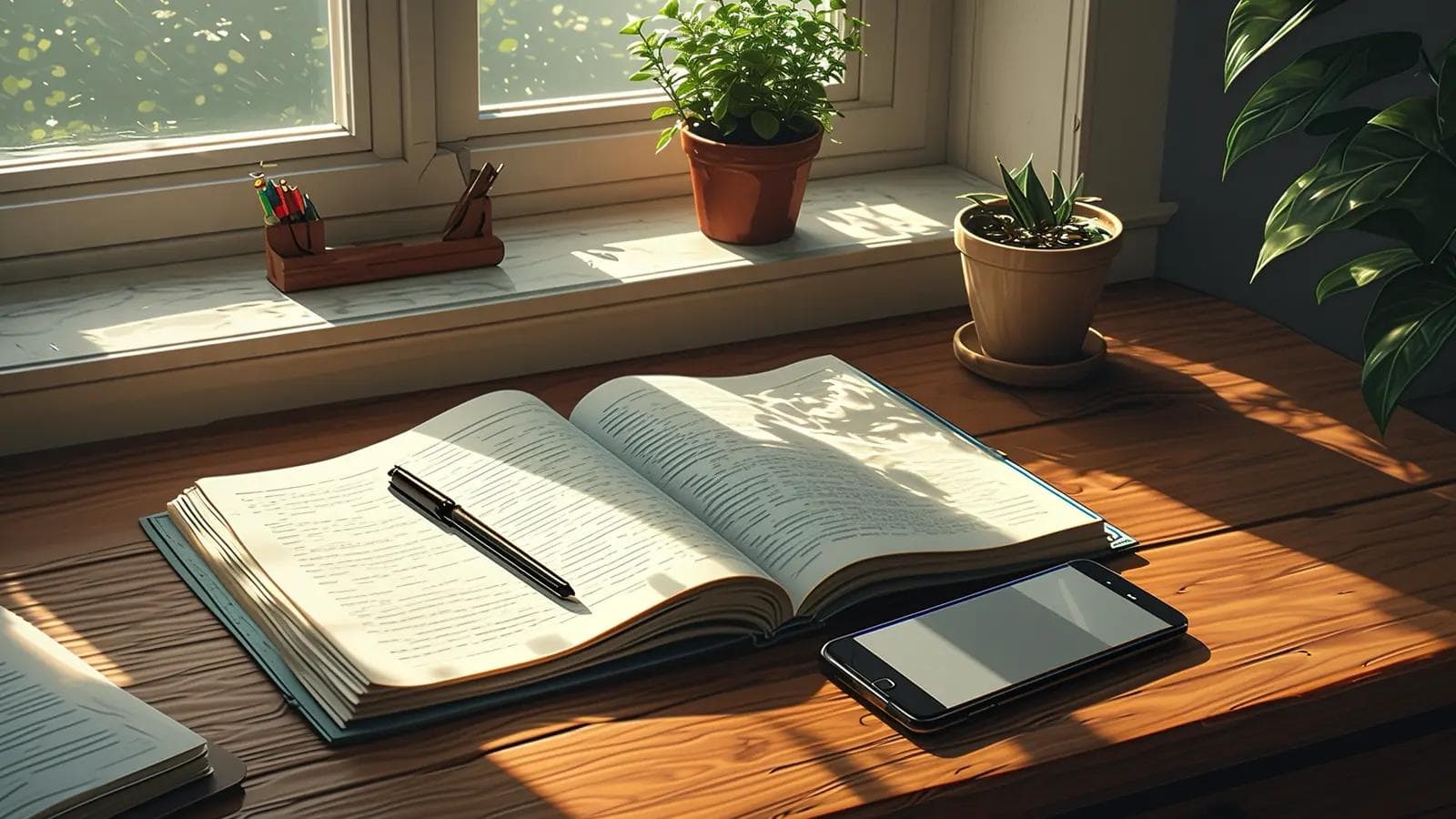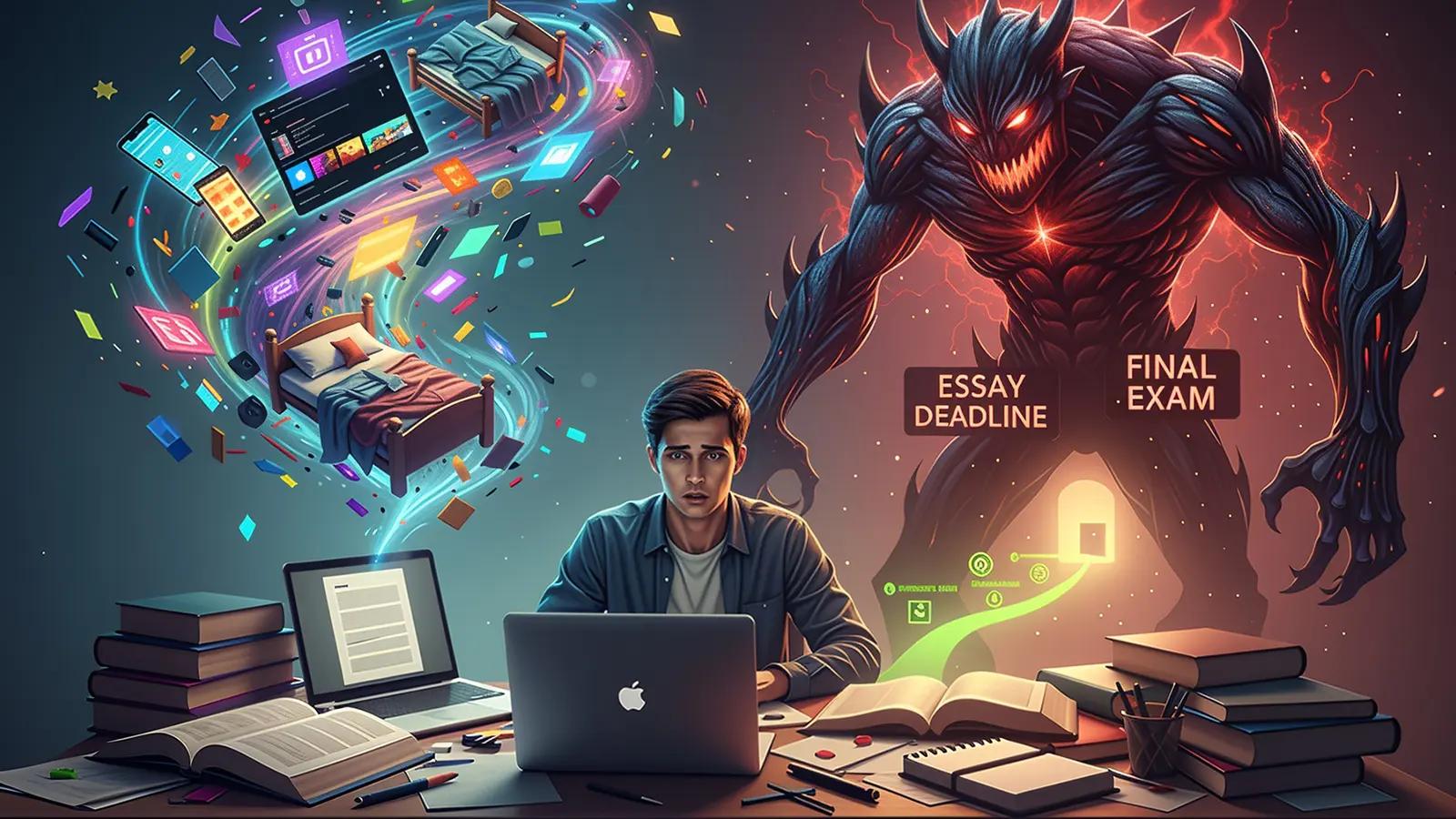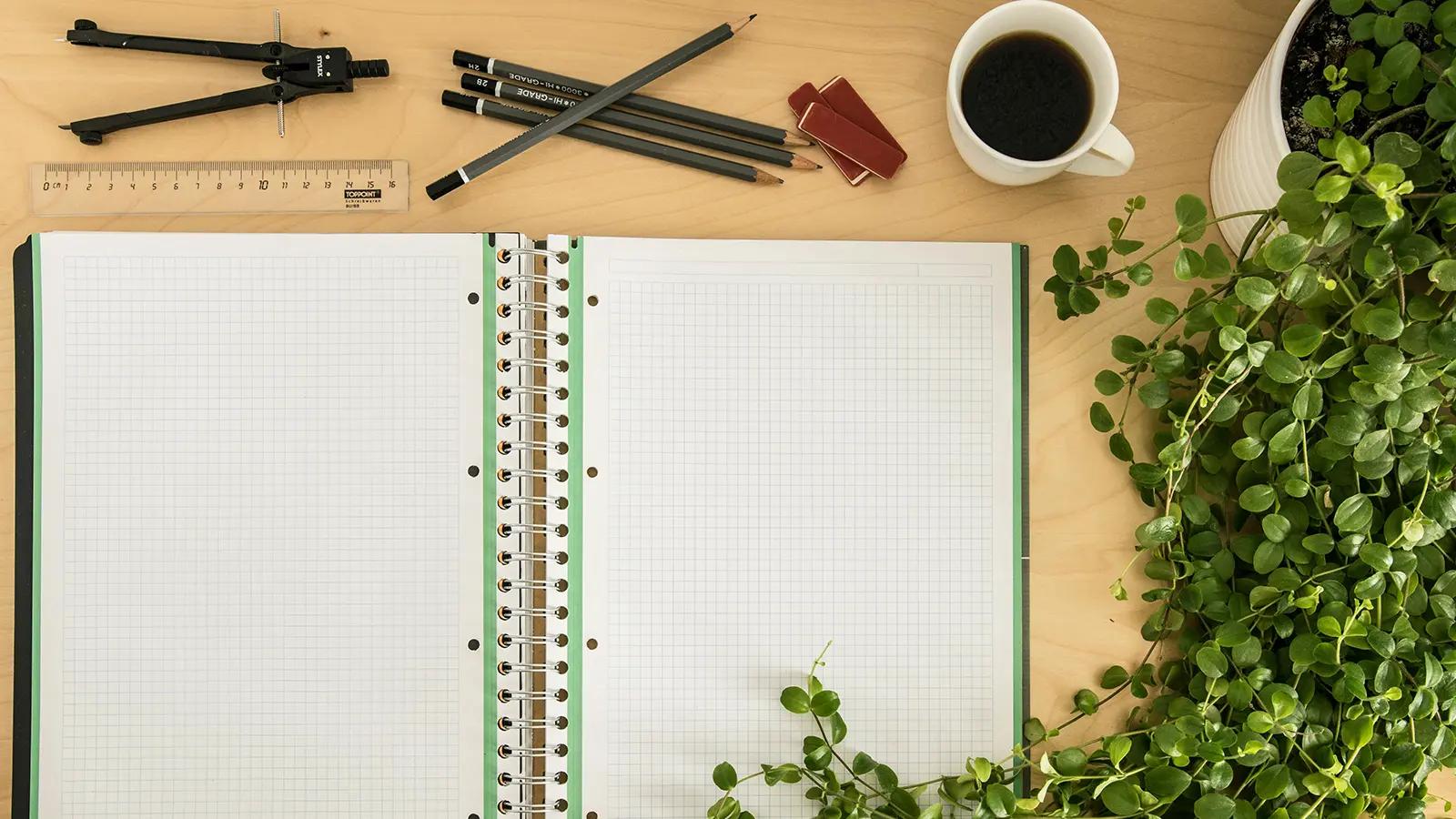The Digital Detox for Students: How to Unplug and Re-Focus Your Brain for Better Grades
Constant notifications draining your mental battery? Learn how to perform a strategic 'digital detox' for students to boost concentration, reduce anxiety, and improve academic performance.

Introduction: Your brain is in a constant state of 'high alert.' Every buzz, ping, and notification pulls your focus, creating 'attention residue' that makes deep work (like studying for exams) nearly impossible. Even a "quick glance" at a text shatters your concentration. This isn't just a distraction; it's rewiring your brain for shallow, non-focused work. A student-focused digital detox isn't about giving up technology; it's about taking back control.
The 'Attention Residue' Problem: Why 5 Seconds on Instagram Ruins 20 Minutes of Study
Psychologist Sophie Leroy coined the term "attention residue." It describes what happens when you rapidly switch tasks. When you "quickly check" Instagram, a part of your brain's attention stays stuck on what you just saw.
What is 'Context Switching'?
When you switch from 'Studying' to 'Checking TikTok,' your brain can't just flip a switch. It takes a significant amount of time (up to 20 minutes) to get back into that original deep "flow state" of studying. If you check your phone every 10 minutes, you are never achieving deep work.
How Social Media Feeds on 'Intermittent Variable Rewards'
Social media apps are designed to be addictive. They use the same psychological trick as a slot machine: 'intermittent variable rewards.' You pull the lever (refresh the feed) not knowing what you'll get. This makes studying, which has a delayed reward, feel "boring" by comparison.
A 7-Day Action Plan for Your Student Digital Detox
This isn't about moving to a cave. It's about a 7-day 'reset' to reclaim your focus.
Day 1-2: Audit and Awareness
You can't fix what you don't measure. Use your phone's built-in screen time tool (or an app like 'RescueTime') to get the cold, hard data. Where is your time really going? No judgment, just data. Then, turn off ALL non-essential notifications (everything except calls/messages from key people). Be ruthless.
Day 3-4: Create 'Phone-Free' Zones and Times
This is the most critical step.
- The #1 Rule: No phone at your study desk. Period.
- The #2 Rule: No phone in your bedroom. Charge it in the kitchen or living room overnight. Buy a $10 alarm clock. This one change will dramatically improve your sleep quality and morning focus.
Day 5-6: The 'Analog' Replacement
You can't just create a void; you have to replace the habit. When you feel the 'itch' to scroll, what will you do instead?
- Read a physical book (not on a screen).
- Go for a 5-minute walk.
- Journal your thoughts.
- Just sit and be bored (this is where your best ideas come from).
Day 7: The 'Re-integration' Strategy
You're not going to live without a smartphone. The goal is 'intentionality.' Re-install apps one by one, but only with firm rules.
- Set specific time limits (e.g., "20 minutes of social media after all study is done for the day").
- Keep your phone on 'Do Not Disturb' mode by default.
Life After the Detox: How to Maintain Your Newfound Focus
- Use 'Grayscale' Mode: Go into your phone's accessibility settings and turn on grayscale. This makes your phone 'boring.' Those red notification bubbles lose all their power.
- The 'App-etizer' Rule: Delete the apps, use the clunky mobile browser version. The extra friction of having to log in each time will kill your mindless scrolling habit.
Conclusion: Your Brain is a Tool, Not a Notification Center
After this detox, you'll be shocked at two things: how much 'free time' you suddenly have, and how much clearer your mind feels. Protecting your focus is the single most valuable skill you can build as a student.
Frequently Asked Questions (FAQ)
S: Won't I miss out on important social events? (FOMO) C: This is the 'Fear of Missing Out.' But 99% of "urgent" information isn't. You'll quickly find that this fear is replaced by JOMO (the 'Joy of Missing Out')—the pleasure of being present in your own life without constant digital interruption.
S: But I need my computer/phone for research! C: This isn't about 'no tech,' it's about 'focused tech.' Use blocker apps like 'Freedom' or 'Cold Turkey.' You can configure them to block distracting sites (like social media, news) while allowing access to your school's portal or research sites like JSTOR.
Written by Daily Motivation Team
Sharing motivational content to inspire your journey to success.
Related Articles

The Procrastination Killer: 5 Scientific Strategies to Stop Delaying and Start Studying
Stop the endless cycle of delay. This guide uses psychology-backed strategies to help students beat procrastination, build focus, and take control of their academic life.

Active Recall vs. Passive Review: Why You're Studying Wrong (And How to Fix It)
Stop rereading notes. Use Active Recall to strengthen memory, boost learning, and achieve real mastery.